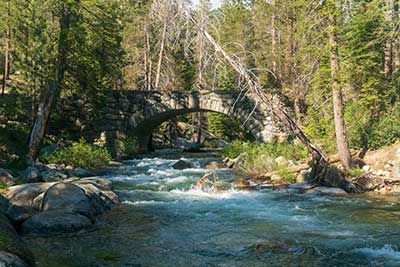In our last blog post, we shared 5 tips for getting started with personal Bible study. We got as far as gathering our Bible Study supplies, planning a time to study and choosing and chunking up your portion of Scripture. You may even have ordered a new KJV Bible!
You’ve done some research on the basic who and when and what of your passage. If you’ve chosen a book of the Bible, you’ve read it over in its entirety before narrowing in on a group of verses. Hopefully you’ve already started underlining and circling!
Let’s dive into some next steps!
1) Simple Focus
A simple way of approaching Bible study is to aim to answer two questions: what does this say about God and what does this say about man? We will begin to notice who God is by what he says and does, and the same for man. Some of these answers are clear on first reading, but by going through a few more steps, we can push forward into further insights.
2) Give It A Go On Your Own
There are many commentaries, sermons, and books that can shed light on our passage, and you may have consulted these as you set up the context for your reading. These are great for reference, but you may want to really challenge yourself to leave those behind for now as you put your own brainpower to work. Pray for wisdom and understanding, trusting God to teach you.
3) Read The Bible Passage Over And Over
Perhaps your plan has you reading a particular section for a few days in a row to become familiar and gain understanding. The best way to know the Bible is to read it, so it helps to read a selection over a few times so you feel very familiar with it. Once you’ve done that, examine it further.
As an example, let’s take a look at Psalm 1 and some questions to take us deeper. Here’s the text:
Psalm 1
4) Ask Some Questions Of The Text
1. What strikes you initially? What main themes pop out? What questions are raised?
2. Look at the words. Are there repeated words? Transition words to guide our train of thought?
3. What literary devices do you see, i.e. metaphor, imagery, symbolism?
4. Does the passage remind you of any other verses you might know? Look up those passages and see how they connect.
Or, you might think about Jesus as the “living water.” You may know the passage, or, it might be time to look at your concordance and search for “water”, or type “living water into an online concordance, and you’ll get a few references to look up. You’ll find the story of the woman at the well, who asks, “…from whence then hast thou that living water?” Jesus replies:
“Whosoever drinketh of this water shall thirst again: But whosoever drinketh of the water that I shall give him shall never thirst; but the water that I shall give him shall be in him a well of water springing up into everlasting life.” John 4:13, 14.
Looking up these additional references adds to your study by putting your original passage into the context of the whole Bible – the metaphor of a tree by a stream is worth meditating on, and the words of Jesus worth pondering.
5) Let’s Look At What We’ve Learned
Circling back to our first point and our simple focus, what have we learned about God? We see from verse 6 of Psalm 1 that the God “sees” the way of the righteous. We can “trust” and “hope” -from Jeremiah 17:7 and 8- in his faithfulness. Also, like water, the spiritual feeding he provides is infinite, and made perfect through Jesus’s death and resurrection. We can live in the stream of living water to “everlasting life”!
What we’ve learned about man isn’t great news, as it seems that any activity, whether walking, standing, or sitting, we are tempted to sinfulness! We have the potential to be blown about by the winds of ungodly living, like unrooted chaff. But we are also given God’s law, and, as we delight in and meditate on it, we will bear the fruit of righteousness and our leaves, like the tree by the river, will not fade, and our roots will grow deep and strong.
6) Apply This Truth To Daily Living
We’ve uncovered a lot of good truth here. What does this mean for us today? Perhaps we might ask how we are delighting and meditating on God’s word regularly. Also, think about the fact that Jesus is the living water; the river of his grace feeds the tree. Praise him for giving us the Holy Bible, where we can continue to learn about him, and the grace that keeps us coming back for more.
Are you standing “in the way of sinners” in some area of your life? Think about the woman at the well. Jesus clearly named her sin, and yet promised her the living water that only he could give to bring her back to life and fruitfulness.
If there is this much encouragement from a few minutes studying in the Psalms, can you imagine if we meditated day and night?
We hope this will jump start your personal Bible study in 2021!
And, as a BONUS tip – ask others to join you in this journey! Learn together from God’s Word, encourage one another, and remind each other to study the Bible.




